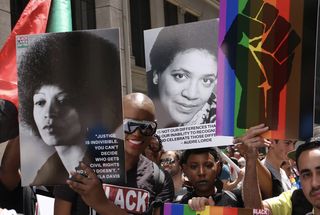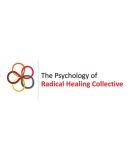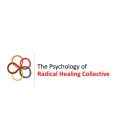Psychology
The Psychology of Radical Healing
What can psychology tell us about healing from racial and ethnic trauma?
Posted March 5, 2019 Reviewed by Jessica Schrader

By Helen A. Neville, Hector Y. Adames, Nayeli Y. Chavez-Dueñas, Grace A. Chen, Bryana H. French, Jioni A. Lewis, & Della V. Mosley, The Psychology of Radical Healing Collective
These are stressful times. Whenever we turn on the television or check social media, there are new accounts of acts of violence directed against People of Color or Indigenous people (POCI). Many of us watch in horror and outrage as we see a Black or Brown person being killed or harassed by police or a photo of college students in blackface; our hearts ache as we learn about the sexual abuse of asylum-seeking children in U.S. custody and the epidemic of missing and murdered Indigenous girls and women.
Our blood pressure and heartbeats rise after hearing about yet another police shooting and then again when we learn the police officers responsible for the death receive no or little jail time for the killing. Just last month, Jason Van Dyke was given only 81 months for murdering 16-year-old Laquan McDonald. And in early March, news broke that the officers who killed Stephon Clark in his grandmother’s backyard will not face criminal charges.
Being exposed to racial violence takes a toll on our collective mental health. Jacob Bor and his colleagues (2018) conducted a national population study on the negative effects of police killings on mental health. Nearly half (49 percent) of the Black Americans interviewed lived in a state in which the police killed an unarmed Black person within a period of three months. Black Americans who lived in states with more police killings of unarmed Black people reported worse mental health. Perhaps not surprisingly, these same killings did not have an impact on the mental health of white Americans.
We know from psychological science that greater exposure to racism is also related to increased levels of emotional distress such as depression and anxiety. The recently published special issue of Cultural Diversity and Ethnic Minority Psychology (2019) documented the social determinants of health disparities and addressed the role of psychological research in promoting health equity. Additionally, the special issue of the American Psychologist (2019) identified the physical and emotional symptoms people experience after exposure to individual, institutional, or historical trauma. Articles in that issue also incorporated information about the ways in which people heal from such trauma.
We created The Psychology of Radical Healing Collective to share evidence-based practices that promote individual and collective healing from racial oppression. In an upcoming journal article, we propose a Psychological Framework of Radical Healing (French et al., in press). We draw on insights from the article to inform our discussion of radical healing here, including specific steps you can take to cultivate radical healing in your lives and communities.
What is Radical Healing?
Radical healing involves being or becoming whole in the face of identity-based “wounds,” which are the injuries sustained because of our membership in an oppressed racial or ethnic group. Wounds also include the ways in which our parents and their parents were harmed and traumatized by racist policies and practices, such as being denied the right to vote, being forced to attend assimilation schools, or being denied citizenship. These also include deep wounds that our ancestors experienced including broken treaties, stolen lands, enslavement, colonization, exploitation, internment camps, and the attempted erasure of these histories from public memory.
Psychologist Lillian Comas-Díaz (2007) and educator Shawn Ginwright (2010) remind us that in order to heal from such injuries, it is important to challenge and change the oppressive conditions that caused the wounds. Because we are unable to travel back in time, the task of radical healing involves working to change the current manifestations of these deep and still open injuries. This could involve reducing police killings of unarmed people, ending the practice of separating children from their parents and placing them in detention facilities, or making public our histories of oppression and resistance.
In essence, radical healing involves personal and collective actions that promote living a life with dignity and respect. Such a life necessitates freedom from all forms of oppression.
How is Radical Healing Different from Conventional Healing?
When people think of psychological healing, they often think about reducing the emotional pain associated with traumatic events. Conventional healing focuses on individual symptom reduction such as teaching someone how to regulate their emotional responses to racism. Radical healing incorporates strategies that address the root causes of the trauma by building on the strengths of individuals and engaging the general and culture-specific practices of their community that promote resilience and wellbeing. Such strategies can include community healing circles, intergenerational storytelling, and advocacy work.
Five ways People of Color and Indigenous People Can Cultivate Radical Healing:
- Develop pride in your racial/ethnic/indigenous group. As a POCI, be proud of who you are and of your community, and become fascinated by your culture. Research consistently shows that feeling greater pride in the cultural traditions and accomplishments of one’s racial or ethnic group is linked to lower rates of depression and greater wellbeing for POCI. The best way to develop pride is to learn more about your history, connect with your group, and learn about the ways POCI survived and thrived in the face or oppression and hate.
- Share your story. Many of our cultures embrace storytelling traditions. Scholars across disciplines have documented the curative effects of sharing and listening to stories. Find a person or people from your community who you trust and with whom you can share your experiences with racism. Ask your parents and grandparents to tell you stories of what it was like for them growing up.
- Resist and take action. Educate yourself about an issue that is affecting your community locally or nationally. Identify groups who are working to address the issue. Join one of the group’s efforts in taking collective action to create change.
- Maintain radical hope. Reflect on the ways that your ancestors survived through some of the most difficult times in history (e.g., slavery, colonization, internment camps, detention centers). Your ancestors resisted, persisted, and they contributed to the core ideas of a democracy. Their contributions are a testament to the fact that things will be different and better in the future.
- Practice self-care. Fighting for social justice can be exhausting. Engage in restorative self-care practices that will benefit you and your community, including getting enough sleep, eating healthy, and incorporating a spiritual practice into your daily life. As Black feminist author and activist Audre Lorde eloquently stated, staying healthy in a system that undermines your very existence is the greatest act of resistance.
References
Comas-Diaz, L. (2007). Ethnopolitical psychology: Healing and transformation. In E. Aldarondo, (Ed.), Advancing social justice through clinical practice (pp. 91-118). Mahwah, NJ: Lawrence Erlbaum Associates Publishers.
French, B.H., Lewis, J.A., Mosley, D., Adames, H.Y., Chavez-Dueñas, N.Y., Chen, G.A., & Neville, H.A. (in press). Toward a psychological framework of radical healing in communities of color. The Counseling Psychologist.
Ginwright, S.A. (2010). Black youth rising: Activism and radical healing in urban America. New York, NY: Teachers College Press.


